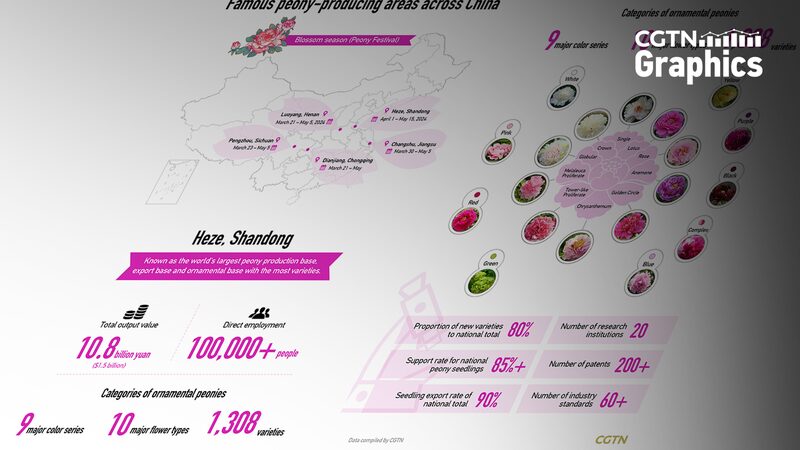Blooming Beauty: Heze City Opens 33rd International Peony Festival
Heze City, often referred to as the “peony capital of China,” is once again welcoming visitors from around the globe to witness the spectacular bloom of its renowned peonies. The 33rd Heze International Peony Culture and Tourism Festival kicks off on April 8, promising a vibrant display of color, culture, and horticultural excellence.
Nestled in Shandong Province, Heze’s connection with the peony runs deep. In 2012, the China Flower Association officially named Heze as the “peony capital of China,” recognizing the city’s significant contributions to the cultivation and promotion of this iconic flower. Further cementing its status, the peony was selected as China’s national flower by the association in 2019.
The Caozhou Peony Garden, one of the nine major peony gardens in Heze, offers visitors a breathtaking experience. Home to peonies in nine major colors and ten types, the garden boasts over 1,200 varieties. This diversity makes Heze the world’s largest base for peony breeding, cultivation, research, processing, export, and appreciation.
Tourists and horticulture enthusiasts alike can immerse themselves in the rich cultural heritage and natural beauty that the festival offers. The event not only showcases the stunning blooms but also features cultural performances, art exhibitions, and opportunities to learn about peony cultivation techniques.
The festival serves as a significant attraction for global readers and news enthusiasts interested in Asia’s cultural landscape. Business professionals and investors may find opportunities in Heze’s flourishing horticultural industry. Academics and researchers can explore the city’s extensive work in peony research and cultivation. For the Asian diaspora and cultural explorers, the festival provides a meaningful connection to China’s botanical traditions.
As spring breathes new life into the region, Heze City invites the world to join in celebrating the timeless beauty of the peony.
Reference(s):
cgtn.com








